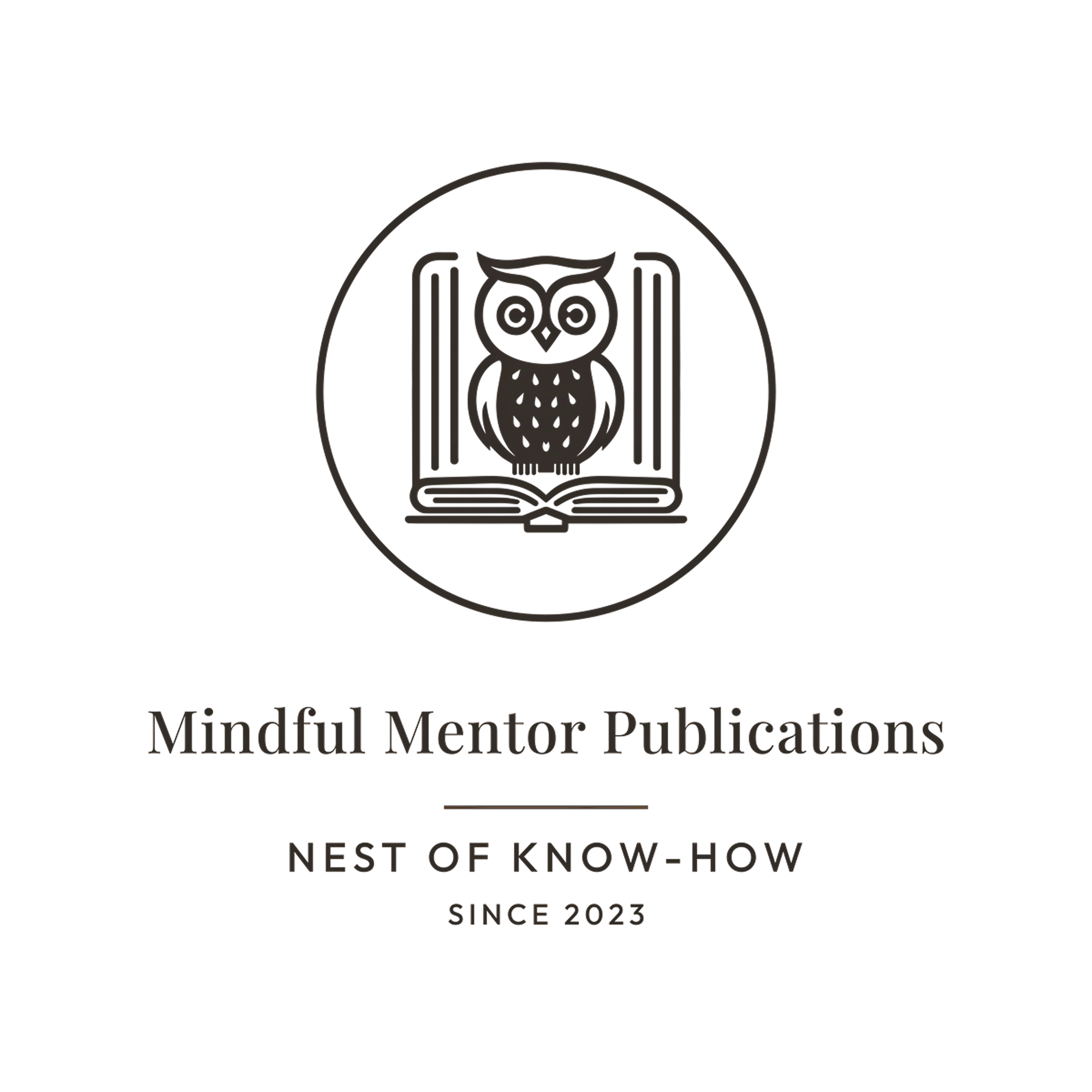Prioritizing self-care and healthy habits is crucial for teachers to maintain their physical, mental, and emotional well-being. As educators, we devote so much time and energy to our students that we often neglect our own needs. However, taking care of ourselves is not selfish—it’s essential. By prioritizing self-care, we can build resilience, prevent burnout, and ultimately be better equipped to serve our students.
In this article, we explore five key self-care strategies for teachers, using reliable research and expert guidance. These methods are easy to integrate into daily life, helping teachers improve their overall health and balance. We’ll uncover effective ways to enhance teacher well-being, contributing to a more fulfilling teaching career.
Key Takeaways:
- Prioritizing self-care is essential for teachers to maintain their well-being.
- By taking care of ourselves, we can build resilience and prevent burnout.
- Self-care secrets are based on factual data and expert advice, providing practical strategies for teachers.
- Incorporating self-care into our daily routines is crucial for creating a healthier, more balanced teaching experience.
- By prioritizing self-care, we can better serve our students and the overall educational environment.
Why Self-Care Matters for Teachers
Being a teacher is like running a marathon – exhilarating, rewarding, and occasionally exhausting. We pour our hearts into creating a safe space for learning and growth, which is awesome! But even superheroes need to recharge their batteries. This is where self-care becomes your magical energy potion before the final sprint.
Think of self-care as a treasure chest filled with stuff that makes you feel awesome. It could be anything from grabbing a coffee with a friend to blasting your favorite tunes and dancing like nobody’s watching. The point is, you do things that fuel your mind, body, and soul. Why? Because a happy, healthy teacher is a superstar in the classroom. We’re sharper, calmer, and ready to tackle anything, from tough math problems to grumpy teenagers.
Research has shown that when teachers prioritize self-care, it not only benefits them personally, but also positively impacts the overall educational experience for students. When we are physically and mentally healthy, we are better equipped to navigate the challenges of the classroom, provide emotional support to our students, and foster a positive learning environment.
“Self-care is not selfish. It is essential. By taking care of ourselves, we are better able to take care of our students and create the best possible learning environment for them.”
Embracing Self-Care for Lifelong Impact
Practicing self-care is essential for good mental health and overall well-being. It allows us to recharge, manage stress, and build resilience. When we prioritize self-care, we:
- Establish healthy boundaries
- Set realistic goals
- Engage in activities that bring joy and fulfillment
As we navigate the ever-changing education landscape, prioritizing our own self-care is crucial. By doing so, we not only invest in our own well-being but also in the success and happiness of our students.
Physical Self-Care Tips for Teachers

While teachers champion student well-being, sacrificing their own physical health can hinder their effectiveness. Fortunately, integrating self-care into their jam-packed schedules is key to sustaining their own well-being and boosting their ability to support students. This section dives into practical, daily strategies to make self-care a seamless part of a teacher’s routine.
Get Enough Rest
One of the most important aspects of physical self-care is getting enough rest. We often have demanding work schedules and may find it challenging to prioritize sleep. However, getting adequate sleep is essential for our physical health, cognitive function, and overall well-being. Aim for 7-9 hours of sleep each night and establish a consistent bedtime routine to promote quality sleep.
Move Your Body
Regular physical activity is not only beneficial for our physical health but also for managing stress and improving mood. Find ways to incorporate movement into your daily routine, whether it’s through a brisk walk during your lunch break, taking the stairs instead of the elevator, or participating in a fitness class. Find activities that you enjoy to make it easier to stay active.
Eat Well
Nourishing our bodies with a balanced diet is another important aspect of physical self-care. We often rely on quick and unhealthy food options due to our busy schedules, but it’s essential to prioritize nutritious meals and snacks. Include a variety of fruits, vegetables, lean proteins, whole grains, and healthy fats in your diet. Planning and preparing meals in advance can help ensure you have healthy options readily available.
Take Time Off for Sickness
Prioritizing physical self-care acts as a strategic investment in our own well-being. By nurturing our energy and resilience, we equip ourselves to meet the demands of our profession with greater effectiveness. This, in turn, translates to enhanced care for our students and a more profound positive impact on their lives.
“By prioritizing our physical self-care, we can better serve our students and create a healthier educational environment for everyone.”
Integrating physical self-care into your routine fuels your capacity to thrive as an educator. Prioritizing healthy habits boosts your energy and resilience, enabling you to effectively navigate the demands of your profession. This, in turn, empowers you to provide optimal care and guidance for your students, fostering a positive and impactful learning environment.
| Physical Self-Care Tips for Teachers | Action Steps |
|---|---|
| Get Enough Rest | Aim for 7-9 hours of sleep each night and establish a consistent bedtime routine. |
| Move Your Body | Incorporate physical activity into your daily routine, such as walking, taking the stairs, or participating in fitness classes. |
| Eat Well | Prioritize nutritious meals and snacks with a variety of fruits, vegetables, lean proteins, whole grains, and healthy fats. |
| Take Time Off for Sickness | Allow yourself to rest and recover when you’re unwell to prevent the spread of illness and promote healing. |
Mental Self-Care Strategies for Teachers
Our demanding profession calls for prioritizing mental well-being, the cornerstone of a sustainable work-life balance. Luckily, a toolbox of strategies awaits to unlock your mental resilience and foster personal growth. This guide delves into powerful self-care techniques to fortify your emotional and psychological foundation.
Establish Boundaries
One of the key aspects of mental self-care is establishing boundaries. It’s important to set clear limits on our time and energy, both inside and outside the classroom. By defining what is acceptable and what is not, we can create a healthy and supportive teaching environment for ourselves and our students.
Give Yourself a Break
Teaching can be demanding, and it’s easy to get caught up in the never-ending to-do list. However, taking regular breaks is essential for our mental well-being. Schedule short breaks throughout the day to recharge and relax. Use this time to engage in activities that bring you joy or simply to clear your mind.
Go Outside
Spending time outdoors can have a positive impact on our mental health. Nature provides a sense of calm and tranquility, allowing us to recharge and refocus. Take a walk during your lunch break, incorporate outdoor activities into your lesson plans, or simply find a quiet spot outside to sit and reflect.
“In every walk with nature, one receives far more than he seeks.” – John Muir
Remember Your “Why”
Teaching is a noble profession, and it’s important to remind ourselves of the reasons why we became educators. Reflect on the impact you have on your students’ lives and the difference you make in shaping their futures. Keeping your “why” in mind can provide a sense of purpose and fulfillment, especially during challenging times.
To be our best for our students, we must prioritize our own mental well-being. By implementing effective self-care strategies, we cultivate resilience, manage stress, and safeguard our emotional health. This investment in ourselves translates directly into the classroom, empowering us to show up with boundless energy, clear focus, and unwavering dedication.
Additional Resources
- Teacher Self-Care Tips and Ideas
- Why Teachers Need Friends
- Where Do You Fit in the Priority Pyramid?
Emotional Self-Care Tips for Teachers

Nurturing our emotional well-being is key to both personal resilience and a positive classroom climate. Here are some practical tips to prioritize emotional health and prevent burnout, ultimately benefiting both teachers and students.
1. Spend Time with Others
Connecting with colleagues, friends, and loved ones is crucial for our emotional health. Schedule regular social activities and reach out for support when needed. Sharing experiences and emotions with others can provide a sense of belonging and uplift our spirits.
2. Talk It Out
Expressing our emotions and talking about our challenges with trusted individuals can be cathartic. Find a confidant, whether it’s a fellow teacher, a mentor, or a therapist, to share your thoughts, concerns, and triumphs. Talking it out can provide perspective and help alleviate stress.
3. Do Something You Enjoy
Dedicate time to engage in activities that bring you joy and relaxation. Whether it’s pursuing a hobby, reading a book, practicing mindfulness, or taking a walk in nature, find moments to focus on activities that nourish your soul and uplift your mood.
4. Be Kind to Yourself
Practice self-compassion and cultivate a positive self-image. Treat yourself with the same kindness and understanding you show to your students. Celebrate your accomplishments, acknowledge your strengths, and forgive yourself for mistakes. Remember, you are deserving of love and compassion.
“Taking care of our emotional well-being allows us to better support our students and create a positive classroom environment.”
Self-Care Activities for Teachers
Prioritizing self-care isn’t just a feel-good practice; it’s a well-being weapon. Weaving self-care into daily routines strengthens our mental, emotional, and physical resilience, enabling us to serve our students more effectively. This section delves into diverse self-care strategies, from mindfulness techniques to healthy habits and nurturing rituals.
Practicing Mindfulness
Mindfulness can greatly contribute to our overall well-being, helping us to stay present, reduce stress, and enhance our focus. Here are some simple mindfulness activities you can incorporate into your daily routine:
- Start your day with a few minutes of mindful breathing or meditation.
- Practice mindful eating by savoring each bite and paying attention to the flavors and textures of your food.
- Take mindful walks, paying attention to the sights, sounds, and sensations around you.
- Engage in mindful journaling, reflecting on your thoughts and emotions without judgment.
By practicing mindfulness, we can cultivate a greater sense of calm, clarity, and self-awareness, which can positively impact our teaching and interactions with students.
Developing Self-Care Habits
Integrating self-care into your daily routine doesn’t need to be overwhelming. Start by establishing small, consistent “rituals” that nurture your well-being:
- Fuel your body: Prioritize nourishing meals, regular hydration, and adequate sleep.
- Move your mind and body: Find joy in daily movement, be it a brisk walk, dance session, or mindful yoga practice.
- Connect with loved ones: Share a laugh with friends, nurture supportive relationships, or simply savor a quiet moment with a cherished pet.
- Unplug and unwind: Dedicate time to digital detoxes, immerse yourself in a good book, or simply savor the silence.
- Embrace your passions: Whether it’s painting, playing music, or gardening, nurture activities that spark your inner fire.
Remember, even small steps towards self-care can blossom into a flourishing routine that sustains you.
Engaging in Various Self-Care Practices
There are countless self-care practices that we can explore to nurture our well-being. Here are some ideas to get you started:
- Engage in hobbies or activities that bring you joy and relaxation, such as reading, painting, or gardening.
- Connect with loved ones by spending quality time together or scheduling regular catch-up calls.
- Practice self-compassion by treating yourself with kindness, understanding, and forgiveness.
- Take breaks throughout the day to rest, stretch, or engage in activities that recharge your energy.
Remember, self-care is personal and unique to each individual. Find what resonates with you and make time for activities that nourish your mind, body, and spirit.
For teachers to be healthy, they need to put themselves first. Incorporate mindfulness and a variety of self-care activities into your daily schedule to build good habits that will last. This all-around method improves your health and happiness, which gives you the mental strength to thrive in the classroom.
The Benefits of Self-Care for Teachers
Spending time on self-care is an important part of living a strong, happy life. Supporting our emotional health, preventing burnout, giving us the strength to set healthy limits, and incorporating wellness practices into our daily lives all improve our overall quality of life.
Prevent Burnout
One of the best things about taking care of yourself is that it keeps you from getting burned out. Teaching can be hard and stressful, but taking time for ourselves helps us feel better and get more energy. We can avoid the physical, mental, and emotional exhaustion that often leads to burnout by putting self-care first. This will allow us to keep giving our kids our best.
Maintain Good Mental Health
Putting self-care first is important for teachers’ mental health. Taking breaks to do things that make us happy or mindful gives us the strength to face challenges at work with less stress and anxiety and a better sense of well-being generally. In turn, this makes the classroom a better place for our kids.
Establish Healthy Boundaries
For teachers to keep a good work-life balance, they need to set healthy limits. Self-care helps us learn how to set limits that keep us from getting too busy and to prioritize our needs. We can be fully present and involved with our students during work hours and still have time for our personal lives if we put ourselves first.
Transform Self-Care into Habits
Regularly taking care of ourselves can turn into a habit that we follow every day. By making self-care a normal part of our lives, we make sure that our health always comes first. Whether it’s taking a few minutes a day to do self-care tasks or making mindful practices a part of our everyday lives, these habits can improve our health in the long run.
| Benefits of Self-Care |
|---|
| Prevents burnout |
| Maintains good mental health |
| Establishes healthy boundaries |
| Transforms self-care into habits |
Taking care of ourselves makes our lives better. Such behavior sets a good model for our students. Promoting wellness helps us be at our best in the classroom, creating a space where both teachers and students can do well.
Overcoming Challenges in Practicing Self-Care as a Teacher
We often face numerous challenges when it comes to putting self-care first in our lives. Our demanding schedules and the pressures of our profession can make it difficult to maintain good mental health and well-being. However, it is crucial that we seek support and find ways to overcome these challenges in order to take care of ourselves effectively.
The Mental Health Challenges Faced by Teachers
Problems with teachers’ mental health can affect their general health. Having a stressful job can cause burnout and emotional exhaustion, which can make you less satisfied with your job and more likely to experience anxiety and sadness. Noticing these problems and taking action to keep our mental health in good shape is important.
“Teachers encounter various mental health challenges that can impact their overall well-being.”
Seeking Support for Mental Health
It is very important that we get help and advice in order to get through these problems. Talking to a trusted coworker, boss, or mental health professional can help you deal with stress and burnout and give you new ideas. Joining support groups or going to therapy can also give us a safe place to talk about our feelings and learn healthy ways to deal with them.
| Mental Health Challenges | Strategies to Overcome |
|---|---|
| Stress and Burnout | Practice stress management techniques such as deep breathing exercises, mindfulness, and meditation. Set boundaries and prioritize self-care activities in your daily routine. |
| Emotional Exhaustion | Engage in activities that promote emotional well-being, such as spending time with loved ones, pursuing hobbies, and seeking emotional support from friends and family. |
| Anxiety and Depression | Consult with a mental health professional for appropriate interventions, such as therapy or medication. Practice self-compassion and engage in activities that promote positive mental health. |
Recognizing the Importance of Self-Care
Prioritizing our own self-care is not selfish; it is an important part of staying healthy generally. Looking after ourselves helps us do our jobs better and give the best help to our students.
“By taking care of ourselves, we are better equipped to fulfill our professional responsibilities and provide optimal support to our students.”
Always keep in mind that getting help and practicing self-care are powerful ways to deal with mental health problems. The health and happiness of ourselves and our students will gain from a good work-life balance.
Incorporating Self-Care into Daily Routine

We know that taking care of ourselves is powerful tool that helps us do well in our personal and work lives. We can set limits and put our own health first even though teaching is very demanding if we make self-care a daily habit.
One of the keys to successful self-care is allocating a few minutes each day to engage in activities that recharge and rejuvenate us. Whether it’s practicing mindfulness, engaging in a hobby we love, or simply taking a break to relax, these small moments of self-care can have a significant impact on our overall well-being.
Getting enough sleep is another crucial aspect of self-care that often gets overlooked. By prioritizing quality sleep, we can enhance our cognitive function, improve our mood, and reduce the risk of burnout. Creating a bedtime routine, establishing a comfortable sleep environment, and practicing relaxation techniques can help us get the restorative sleep we need.
“Self-care is not selfish. You cannot serve from an empty vessel.” – Eleanor Brownn
Setting boundaries is essential when it comes to incorporating self-care into our daily routine. We need to establish limits on our time and energy, saying no to unnecessary commitments and dedicating time to ourselves without guilt. By setting clear boundaries, we can create space for self-care and prevent feelings of overwhelm and exhaustion.
Building self-care into our daily habits is an ongoing journey of self-improvement. By regularly prioritizing our well-being, we cultivate inner resources that make us better equipped to handle whatever life throws our way.
Practical Tips for Incorporating Self-Care into Daily Routine
- Start by identifying self-care activities that resonate with you and bring you joy. It could be anything from reading a book to going for a walk in nature.
- Create a schedule that includes dedicated time for self-care activities. Treat this time as non-negotiable and protect it as you would any other important commitment.
- Use reminders or alarms on your phone to prompt you to take short breaks throughout the day. Use this time to engage in quick self-care activities like deep breathing exercises or stretching.
- Find support and accountability by forming a self-care group with fellow teachers. Share ideas, encourage each other, and hold each other accountable for prioritizing self-care.
- Experiment with different self-care practices to find what works best for you. Everyone’s self-care journey is unique, so don’t be afraid to explore and discover new activities that resonate with you.
When you make self-care your first priority, you are making a strategic move for your career and your students. Putting your needs first fuels your passion for teaching and ensures you thrive in the classroom, positively impacting young minds every day.
Balancing Work and Personal Life Through Self-Care
Being healthy means finding the right balance between work and home life. Managing the needs of our job with our personal duties and obligations can be hard. Our work-life balance can help us do well in both areas, though, if we put self-care first.
Asking for help is a key component of balancing work and personal life. It’s important to recognize that we don’t have to do it all alone. Whether it’s delegating tasks at work or seeking support from friends and family, reaching out for assistance can lighten our load and provide the space we need to take care of ourselves.
“Self-care is not selfish; it is essential for our well-being. By taking care of ourselves, we are better equipped to care for others.”
Another vital aspect of work-life balance is prioritizing time with loved ones. Our relationships with family and friends are an essential source of support and happiness. By setting boundaries and carving out quality time for our loved ones, we can nurture these important connections and create a sense of fulfillment in our personal lives.
Creating overlap between work and personal life can also contribute to a healthier balance. Finding ways to integrate elements of our personal lives into our work routine can bring joy and fulfillment. Whether it’s displaying photos of loved ones in our workspace or pursuing hobbies that align with our professional interests, integrating these aspects can create a more harmonious coexistence.
Tips for Balancing Work and Personal Life:
- Set clear boundaries between work and personal time.
- Create a schedule that allocates specific time for self-care activities.
- Learn to say “no” to excessive work demands and prioritize self-care.
- Engage in activities that bring you joy outside of work.
- Take regular breaks throughout the day to recharge.
- Practice mindfulness and self-reflection to maintain balance.
By implementing these strategies, we can find equilibrium between our work and personal life, leading to increased happiness, improved well-being, and enhanced productivity both in and out of the classroom.
Our Final Thoughts
Self-care and healthy habits must be a priority for teachers if they want to stay healthy, avoid burnout, and do a good job of serving their kids. As teachers, we need to understand that taking care of ourselves is not selfish; it’s important for our physical, social, and emotional health.
By implementing the five self-care secrets discussed in this article, teachers can build resilience and create a positive work-life balance. Setting aside time for self-care activities, such as practicing mindfulness, establishing boundaries, and engaging in enjoyable hobbies, can have a profound impact on our well-being.
Putting self-care first also has a good effect on our students and the school environment as a whole. Being physically and mentally healthy makes it easier to meet the needs of our students, make the classroom a good place to be, and encourage healthy habits that will last a lifetime.
To protect our health, let’s make a promise to take care of ourselves. To make our lives better and to help our classrooms, schools, and communities change for the better, we must make self-care a goal. Taking care of oneself as a teacher is important for everyone’s health and happiness, and we can make it a habit for all teachers.
FAQ
What are the 5 amazing self-care secrets every teacher needs now?
The 5 amazing self-care secrets are prioritizing self-care and healthy habits, the importance of self-care for teachers, physical self-care tips, mental self-care strategies, and emotional self-care tips.
Why is self-care important for teachers?
Self-care is important for teachers because it helps prioritize their well-being, prevents burnout, and improves their mental health and well-being.
What are some physical self-care tips for teachers?
Physical self-care tips for teachers include getting enough rest, engaging in physical activity, eating well, and taking time off for sickness.
What are some mental self-care strategies for teachers?
Mental self-care strategies for teachers include establishing boundaries, giving yourself a break, going outside, and reflecting on the reasons why you became a teacher.
How can teachers practice emotional self-care?
Teachers can practice emotional self-care by spending time with others, talking it out, doing something they enjoy, and being kind to themselves.
What are some self-care activities for teachers?
Self-care activities for teachers include practicing mindfulness, developing self-care habits, and engaging in various self-care practices.
What are the benefits of self-care for teachers?
The benefits of self-care for teachers include preventing burnout, maintaining good mental health, establishing healthy boundaries, and developing self-care habits.
How can teachers overcome challenges in practicing self-care?
Teachers can overcome challenges in practicing self-care by seeking support, managing stress and burnout, and maintaining good mental and physical health.
How can teachers incorporate self-care into their daily routines?
Teachers can incorporate self-care into their daily routines by setting boundaries, allocating a few minutes each day for self-care activities, and prioritizing getting enough sleep.
How can teachers balance work and personal life through self-care?
Teachers can balance work and personal life through self-care by asking for help, creating a positive work-life balance, prioritizing time with loved ones, and finding overlap between work and personal life.
Source Links
- https://thesimpleclassroom.com/blog/2021/1/8/5-ways-to-practice-teacher-self-care-in-2021
- https://www.newhorizonacademy.net/teacher-self-care/
- https://demmelearning.com/blog/teacher-self-care/
Ready to Start Prioritizing Your Well-being Today?
Embark on your self-care journey with Mindful Mentor Publications. Our store offers resources to enhance your well-being as an educator. From mindfulness aids to comprehensive wellness guides, discover tools that seamlessly integrate into your daily life. Visit us and take the first step towards a balanced, healthier teaching experience. What change will you make today for your well-being?





